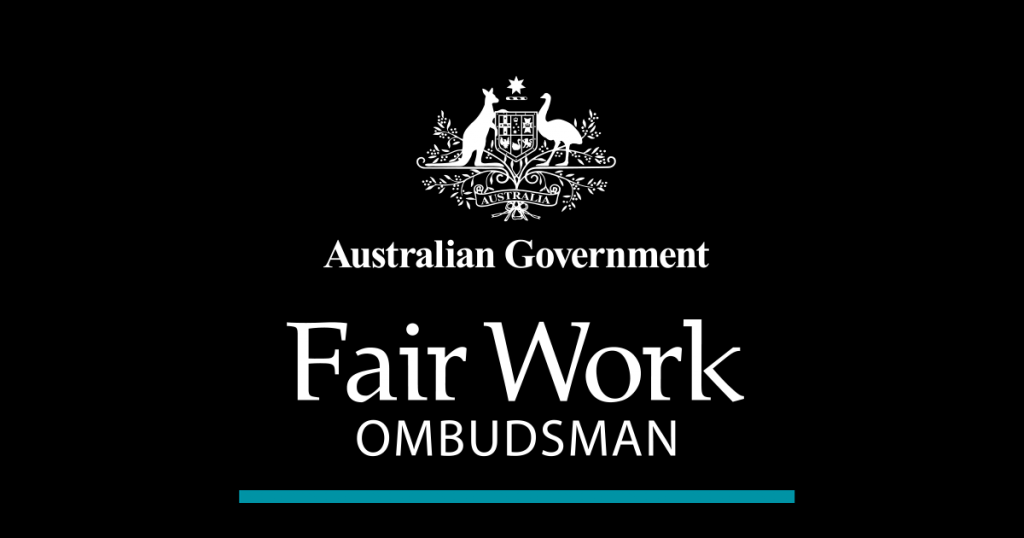Pay slips ensure that employees receive the correct pay and entitlements and help employers to keep accurate and complete
records.
When are pay slips given?
Pay slips have to be given to an employee within 1 working day of pay day, even if an employee is on leave.
How are pay slips given?
Pay slips have to be in either electronic form or hard copy. Electronic pay slips must have the same information as paper pay slips.
What has to be on a pay slip?
Pay slips and the JobKeeper scheme
Under the JobKeeper scheme, eligible employees have to be paid at least the amount of the JobKeeper payment per fortnight
($1500). Pay slips for these periods need to show any extra amount the employer paid the employee to make sure they
received at least the amount of the JobKeeper payment for the period.
For more information, visit Pay & the JobKeeper scheme (https://coronavirus.fairwork.gov.au/coronavirus-and-australian-workplace-laws/pay-and-leave-during-coronavirus/jobkeeper-wage-subsidy-scheme/pay-and-the-jobkeeper-scheme) .
Pay slips have to cover details of an employee’s pay for each pay period. Below is a list of what to include:
– employer’s and employee’s name
– employer’s Australian Business Number (if applicable)
– pay period
– date of payment
– gross and net pay
– if the employee is paid an hourly rate:
– the ordinary hourly rate
– the number of hours worked at that rate
– the total dollar amount of pay at that rate
– any loadings (including casual loading), allowances, bonuses, incentive-based payments, penalty rates or other paid entitlements that can be separated out from an employee’s ordinary hourly rate. For example, a note could be included on a pay slip that the hourly rate incorporates the relevant casual loading.
– the pay rate that applied on the last day of employment
– any deductions from the employee’s pay, including:
– the amount and details of each deduction
– the name, or name and number of the fund / account the deduction was paid into
– any superannuation contributions paid for the employee’s benefit, including:
– the amount of contributions made during the pay period (or the amount of contributions that need to be made)
– the name, or the name and number, of the superannuation fund the contributions were made to.
Should leave balances be on a pay slip?
While it’s best practice to show an employee’s leave balances on their pay slip, it’s not a requirement. Employers do need to tell employees their leave balances if they ask for it.
Requests for pay slips
If as an employee, you don’t receive a pay slip, we encourage you to talk to your employer. Check out our online learning course on having difficult conversations (www.fairwork.gov.au/how-we-will-help/online-training/online-learning-centre/difficult-conversations-in-theworkplace-employee-course) for tips on how to approach your employer.
Employers who give proper pay slips are able to keep good records that can be easily found if needed.
What happens if pay slips aren’t given, or don’t have the right information on them?
Fair Work Inspectors can give employers a fine, called an infringement notice (www.fairwork.gov.au/about-us/our-role/enforcingthe-legislation/infringement-notices) , if they:
– don’t include the right information on a pay slip
– don’t issue pay slips at all or within 1 working day of paying employees.
It is unlawful for employers to give pay slips that they know are false or misleading.
Employers can also be penalised if we choose to take a matter to court (www.fairwork.gov.au/about-us/our-role/enforcing-the-legislation/litigation) . In some cases employers who have not given pay slips may have to prove to a court that they didn’t underpay an employee.
Best practice tips
– Issue pay slips in an easily printable format
– Make sure employees can access and print their pay slips in private
– Pay slips should be written in plain English that is simple to understand
Think a mistake might have been made?
Mistakes can happen. The best way to fix them usually starts with talking.
Check out our Help resolving workplace issues (www.fairwork.gov.au/how-we-will-help/how-we-help-you/help-resolving-workplace-issues/default) section for practical advice on:
– figuring out if a mistake has been made
– talking to your employer or employee about fixing it
– getting help from us if you can’t resolve it.
Help for small business
Find tools, resources and information you might need on our Small business page (www.fairwork.gov.au/Find-help-for/Smallbusiness/default) .

